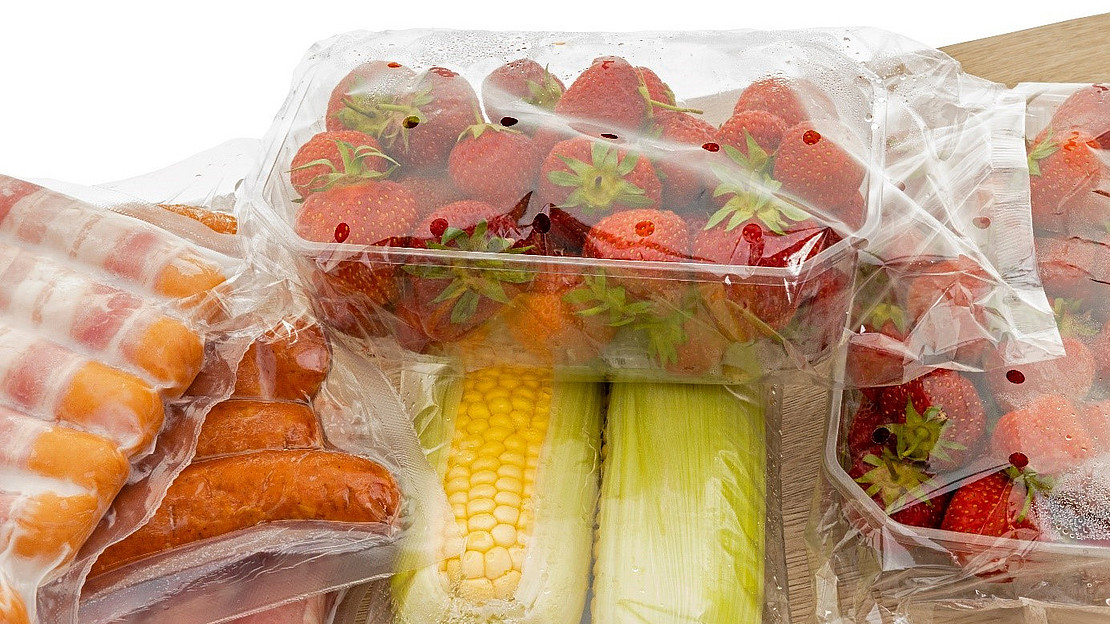This page contains automatically translated content.
Microbial recycling - a solution for multilayer plastic packaging?

The transition to a circular economy, where plastics are kept in their most valuable state, is urgently needed to reduce the environmental impact of plastic use. Films are one of the most important areas of application for plastics. In German households, they make up almost half of single-use plastic packaging. The multi-layer films used particularly frequently in the food industry are regarded as contaminants in the current mechanical recycling process and can only be processed into low-quality products. However, if it were possible to recycle these materials to a high quality, there would be enormous potential to recycle plastic films in closed material cycles.
In order to achieve this goal, Prof. Dr. David Laner, Head of the Department of Resource Management and Waste Technology at the University of Kassel, explains the need for a new innovative recycling technology: "The current mechanical recycling processes for plastic films are not capable of producing high-quality recycled products on a large scale due to the deterioration of product properties and inconsistent product qualities. Another option is chemical recycling, which is also suitable for plastic waste with a low degree of purity, but is less attractive due to the high energy intensity and low product yield of the various processes that break down plastic materials into their components". For this reason, the specialist areas involved in the project are taking up the challenge of developing a new recycling method to reprocess multi-layer plastic films into high-quality products: Microbial recycling.
"We want to develop a new and ecologically optimal recycling technology for polyethylene (PE) films and PE-polyethylene terephthalate (PET) multi-layer films, which leads to high-quality recycled products via the enzymatic depolymerization of PE and subsequent reactive extrusion of short-chain building blocks (oligomers)," explains Prof. Dr. Wolfgang Streit, Head of the Department of Microbiology and Biotechnology at the University of Hamburg. "Because PE is contained in almost every multilayer film, but has not yet been enzymatically decoded like PET, for example."
Prof. Dr.-Ing. Hans-Peter Heim, Head of the Department of Plastics Technology at the University of Kassel, adds: "Although this project is risky due to the completely new approach, it could pave the way for multi-layer recycling with a focus on microbial degradation for engineering plastics and help to achieve the recycling targets set by the European Commission."
The project results will ultimately not only be of interest to the food and packaging industries, but also to the automotive and textile sectors, for example. Although we are not talking about plastic films here, the wide variety of plastics used in cars, the dominance of black plastics and the variety of fillers pose a major challenge for conventional mechanical recycling processes and could make microbial recycling very attractive. The same applies to textiles, for which the variety of materials makes fiber-to-fiber recycling with established technologies difficult.
The project "BioLoop: Micro-biologically enhanced material cycle for closing PE and PE-PET multilayer plastic foil Loops", which will run for four years, is being funded by the Volkswagen Foundation with almost 1.2 million euros. Thematically, the project also ties in with the scientific activities of the Kassel research cluster "BiTWerk - Biological Transformation of Technical Materials" headed by Prof. Dr.-Ing. Thomas Niendorf and Prof. Dr.-Ing. Hans-Peter Heim ( www.uni-kassel.de/go/bitwerk )
Contact:
Samantha Pfanzer
Science Communication, BiTWerk - Biological Transformation of Technical Materials
Tel.: 0561 804-3605
Mail: samantha.pfanzer[at]uni-kassel.de
Homepage: www.ifw-kassel.de